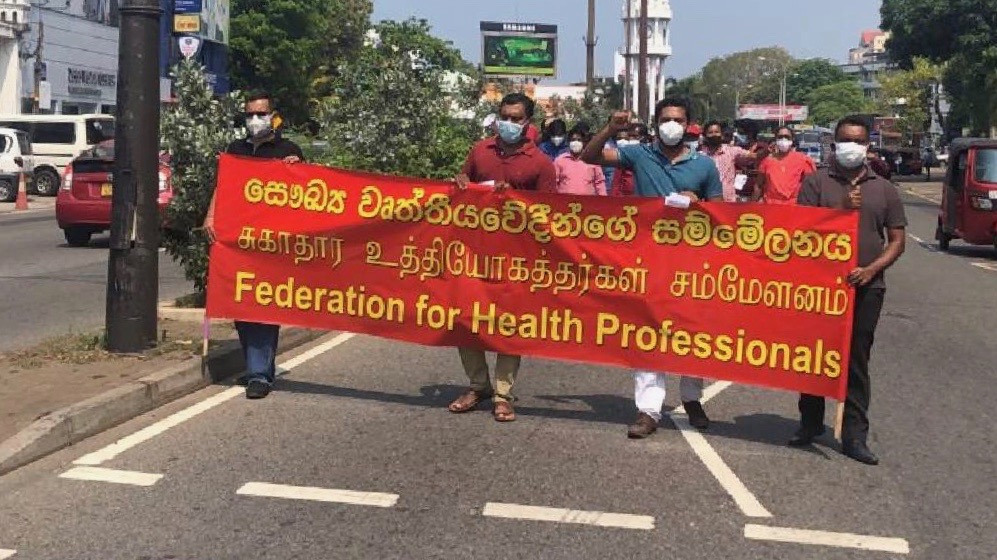Sri Lankan health workers launched an indefinite strike on Monday, February 7 protesting the government’s failure to address salary anomalies and other issues. This follows a one-day strike on January 26 and other actions in the preceding months.
Health workers in Sri Lanka have been participating in intensive industrial action over the past three months. Their major demands include the rectification of salary anomalies, higher allowances for transport and on-call duties from 3,000 Rupees (USD 15) to 10,000 Rupees (USD 49.25), and increase in overtime rates, according to media reports.
The protests that began in November were called by the Federation for Health Professionals (FHP), an alliance of 15 health workers’ trade unions.
In October last year, president Gotabaya Rajapaksa had issued a special gazette banning strikes by employees related to essential services after many public services employees, nurses in particular, went on strike to protest against poor working conditions. According to these new rules, they could face two to five years imprisonment, fines, and possibly lose their professional credentials for taking part in such actions.
In the run-up to the strike on January 26, FMH chairperson Ravi Kumudesh said that the ongoing trade union action is a result of the non-intervention of state authorities to resolve issues pertaining to salary anomalies in supplementary medical services, paramedical services and nursing services, consisting of workers who form the backbone of the health sector.
Kumudesh told The Morning, “We have already carried out a total of eight trade union actions at provincial level to demand solutions for the salary disparities and administrative issues in the supplementary medical service, nursing service and paramedical service.”
Health workers in nursing, complementary medical services and paramedical services, including medical laboratory scientists, had launched a similar token-strike on December 9. On November 24 and 25, thousands of health employees, teachers, development officers and other sections of the working class held protests and strikes across Sri Lanka over the issue of unpaid salaries and worsening work conditions.
The continuing struggle by workers in Sri Lanka comes amid the failure of the Rajapaksa government’s policies to bring the island nation out of an acute economic crisis. Sri Lanka’s foreign exchange reserves fell to USD 1.6 billion in November, triggering alarm across sectors as it severely impacted the country’s import capacity.
The COVID-19 pandemic has led the Sri Lankan economy to the worst contraction ever recorded in its history, resulting in widespread job and earnings losses. According to the latest statistics provided by WHO, Sri Lanka has witnessed around 16,000 deaths from COVID-19 infection since January 2020.





